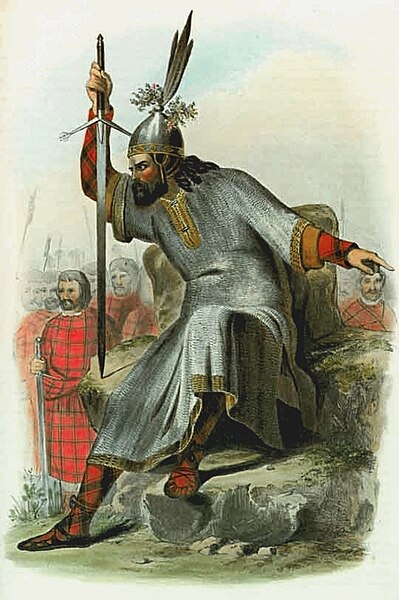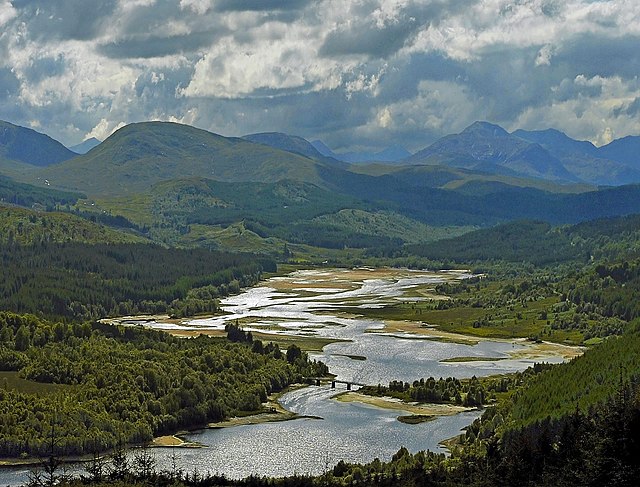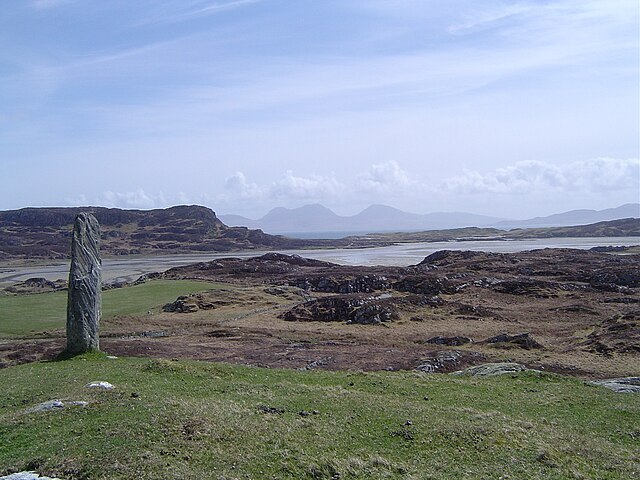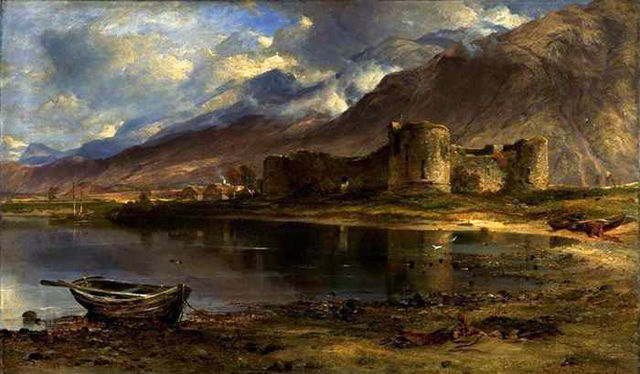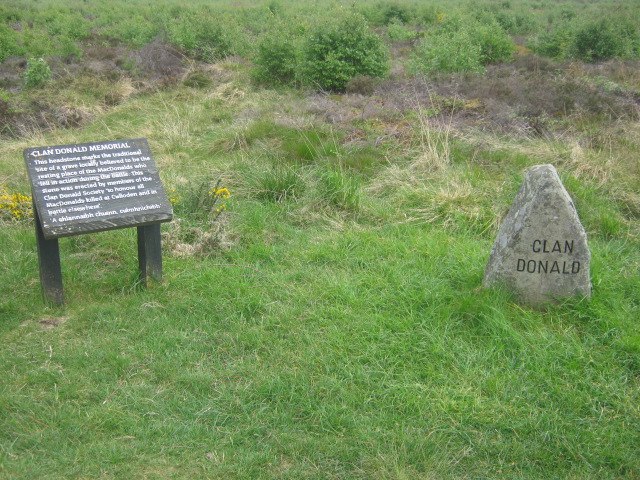Clan MacDonell of Glengarry
Clan MacDonell of Glengarry, also known as Clan Ranald of Knoydart & Glengarry is a Scottish clan and is a branch of the larger Clan Donald. The clan takes its name from River Garry where the river Garry runs eastwards through Loch Garry to join the Great Glen about 16 miles (25 km) north of Fort William, Highland. The progenitor of the MacDonells of Glengarry is Reginald, 4th great-grandson of the warrior Somerled. The clan chief is traditionally designated as the "Son of Alexander's son".
R.R. McIan's Victorian era romanticised depiction of a Macdonald, lord of the Isles.
The MacDonells of Glengarry resided in the glens near Loch Garry.
Ruins of Strome Castle, the original seat of the chiefs of the Clan MacDonell of Glengarry.
A visualization of the heraldric arms for the chiefs of Clan MacDonell of Glengarry (1875).
Clan Donald, also known as Clan MacDonald, is a Highland Scottish clan and one of the largest Scottish clans. The Lord Lyon King of Arms, the Scottish official with responsibility for regulating heraldry in that country, issuing new grants of coats of arms, and serving as the judge of the Court of the Lord Lyon, recognises under Scottish law the High Chief of Clan Donald. Historically the chiefs of the Clan Donald held the title of Lord of the Isles until 1493 and two of those chiefs also held the title of Earl of Ross until 1476. Queen Mary of Denmark is member of Clan Donald.

The Battle of Harlaw as depicted in The Clan Donald volume 1 (1896), by A and A MacDonald, who assert that Donald of Islay and his army of Scottish Highlanders won a victory over the Duke of Albany and his army of Scottish Lowlanders, which resulted in the "total annihilation" of the Lowland army. However, some historians say the battle was indecisive with no clear victor and the Oxford Companion to Scottish History (2011) states that Donald of Islay was "defeated at great cost at Harlaw".
Colonsay, Inner Hebrides; loss of the Lordship of the Isles fractured MacDonald unity
Inverlochy Castle; a Campbell-dominated army camped here before their destruction on 2 February 1645 by a largely MacDonald force
Clan Donald grave marker at the site of the Battle of Culloden

